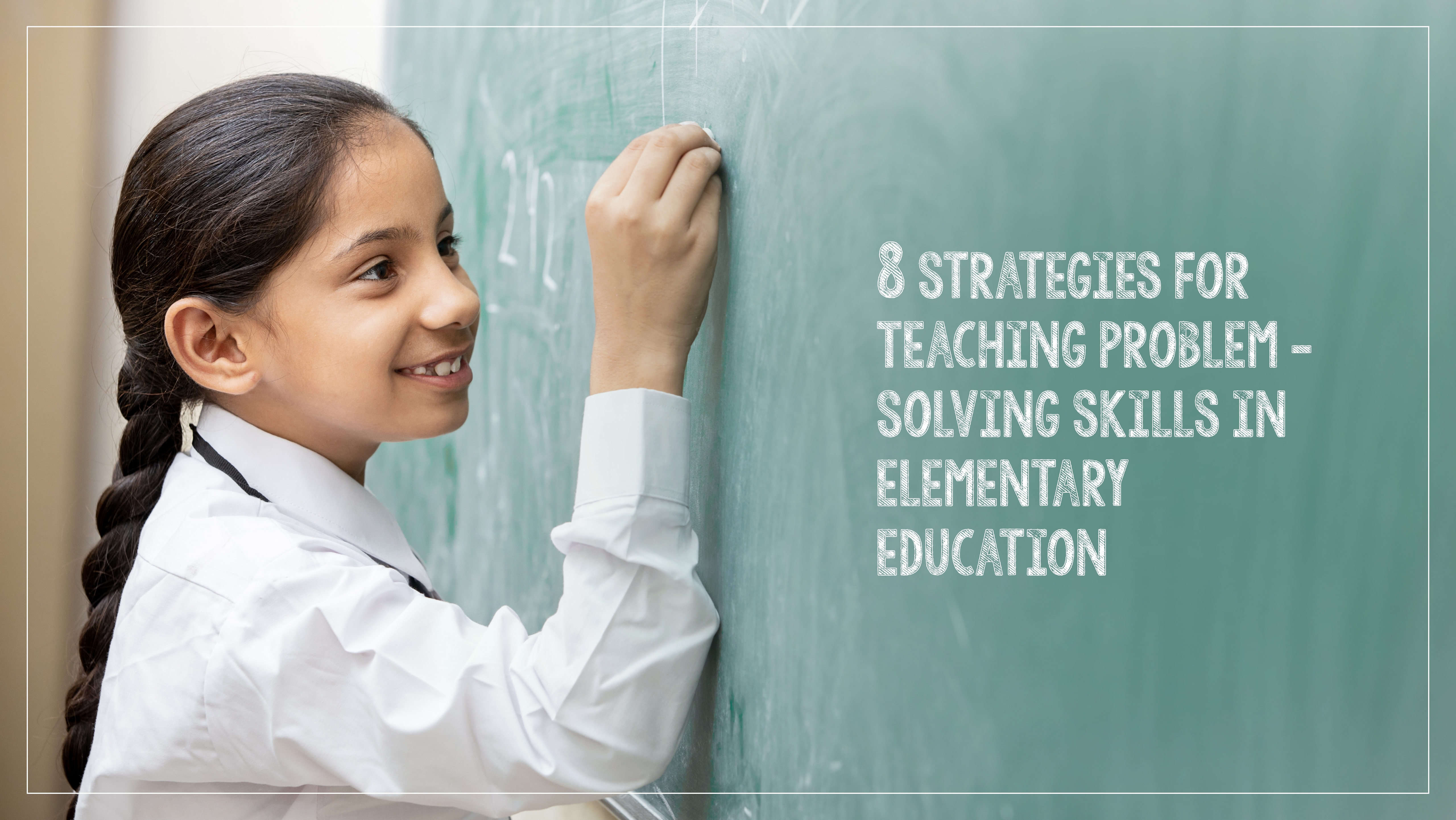Narayana Schools – Reading Corner
Group of Schools
- Search for:

8 Strategies for Teaching Problem-Solving Skills in Elementary Education

Elementary education refers to the foundational years of schooling, typically from classes 1 to 5. During this stage, children develop key cognitive and social skills, making it the perfect time to introduce problem-solving techniques. For parents, understanding how these skills are nurtured in the classroom helps them reinforce these practices at home, ensuring children are better prepared to navigate academic and personal challenges.
Here are 8 innovative ways or proven strategies for parents to support their child’s journey:
1. Encourage Open-Ended Questions – Children benefit greatly when encouraged to think critically by answering open-ended questions. Parents can ask questions like, “What do you think we should do to solve this?” or “Can you come up with more than one solution to this problem?” These discussions at home build confidence, enhance critical thinking skills in elementary education , and foster curiosity.
2. Relate to Real-World Scenarios – Connecting learning to everyday situations helps children see the relevance of their problem-solving skills. For instance, involve them in decisions like planning a family outing or managing their weekly allowance. This approach mirrors what they learn in school, where real-world problems make lessons more relatable and engaging.
3. Integrate Interactive Activities – Encourage the child to participate in interactive activities like solving puzzles, playing strategy-based games, or engaging in creative group tasks. These activities develop adaptability and allow children to explore multiple solutions in a fun, low-pressure environment, aligning with hands-on learning techniques used in classrooms.
4. Promote Teamwork at Home – Collaborative problem-solving isn’t limited to school. Encourage the child to work with siblings or friends on small projects like building a Lego structure or baking a cake. Team activities teach communication, compromise, and teamwork—skills integral to collaborative learning in elementary education .
5. Demonstrate Problem-Solving – Parents can adopt the “think-aloud” method to model effective problem-solving. For example, when facing a household issue like fixing a leaky tap, explain the steps one is taking to address the problem. This strategy mirrors what teachers do in classrooms and helps children internalise logical approaches to challenges.
6. Encourage Trial and Error – Create an environment where it’s okay for the child to make mistakes and try again. This approach fosters resilience and teaches them that failure is part of the learning process. For instance, if a craft project doesn’t turn out as planned, guide them to make improvements, reinforcing the concept of trial-and-error problem-solving . At Narayana Schools, we integrate trial-and-error analysis into our curriculum, encouraging students to experiment with solutions, learn from their mistakes, and build resilience. This approach ensures that students not only solve problems effectively but also develop the confidence to tackle challenges independently.
7. Use Visual Aids – Introduce tools like charts, diagrams, or even drawing mind maps to help your child break down complex problems. These techniques not only make challenges more tangible but also reflect the visual learning methods used in schools to organise thoughts and structure solutions.
8. Instil a Growth Mindset – A growth mindset encourages children to embrace challenges and see effort as a path to mastery. Praise their perseverance and highlight how their hard work pays off, helping them develop optimism and confidence in tackling future obstacles.
Narayana’s age appropriate programme for Overall Growth
At Narayana Schools, age-appropriate and tailor-made programmes ensure that students receive the guidance needed to grow into well-rounded individuals, with a special emphasis on developing problem-solving skills. Recognising that every child learns differently, these personalised programmes provide individualised attention, effectively nurturing students from a young age to create a lasting impact on their academic success and overall development. By fostering creativity, resilience, and adaptability, Narayana equips students with essential life skills, empowering them to become confident problem-solvers.
Teaching problem-solving skills during elementary education builds a solid foundation for lifelong success. For parents, understanding and reinforcing strategies like teamwork, real-world problem-solving, and fostering resilience can make a significant difference. At Narayana, we are committed to nurturing these abilities early on, helping your child grow into a confident, adaptable individual because, at Narayana, your dreams are our dreams.
- X (Twitter)
